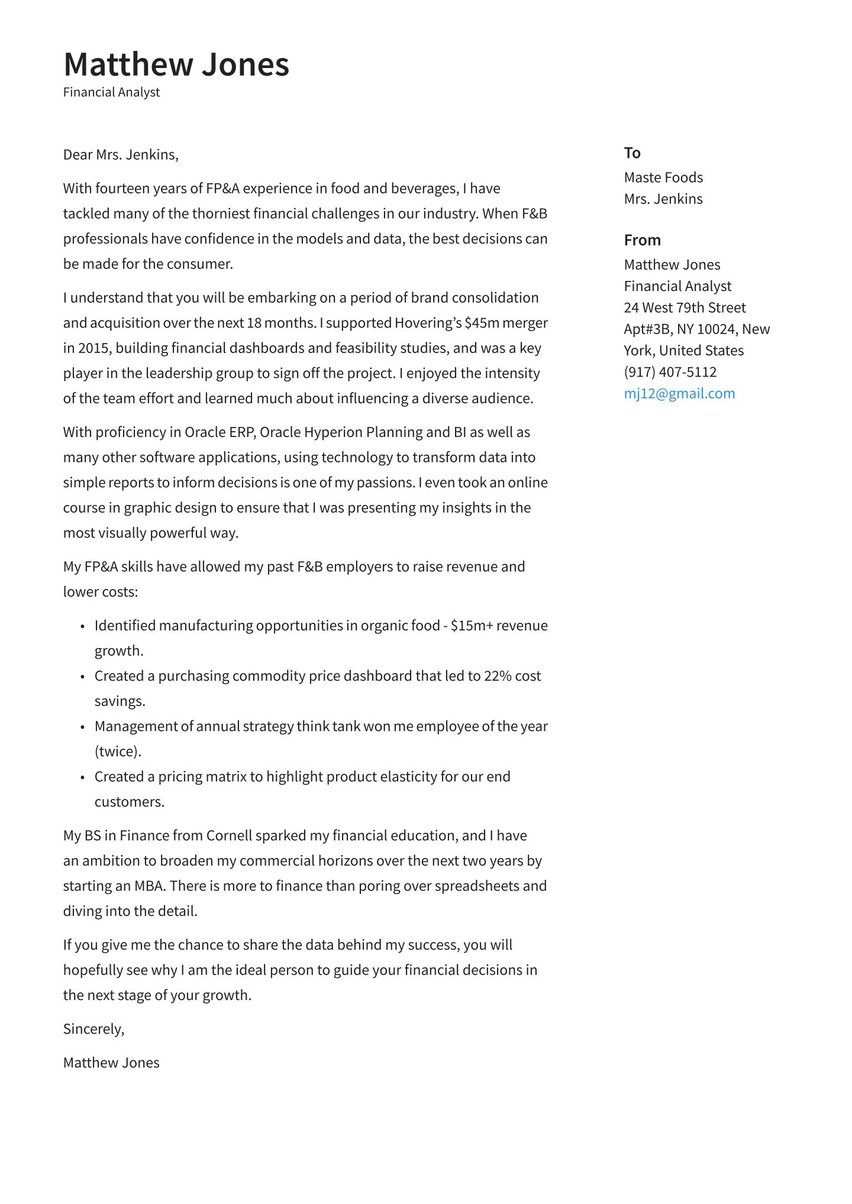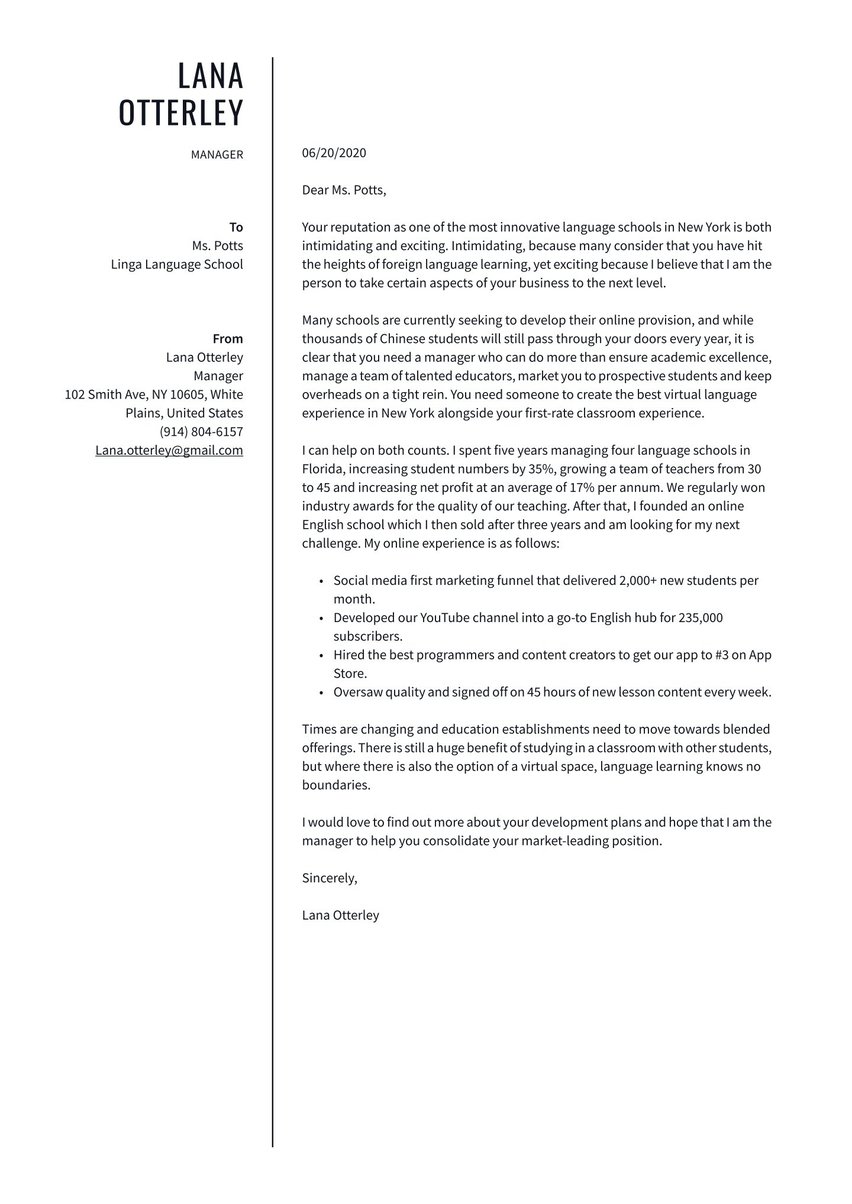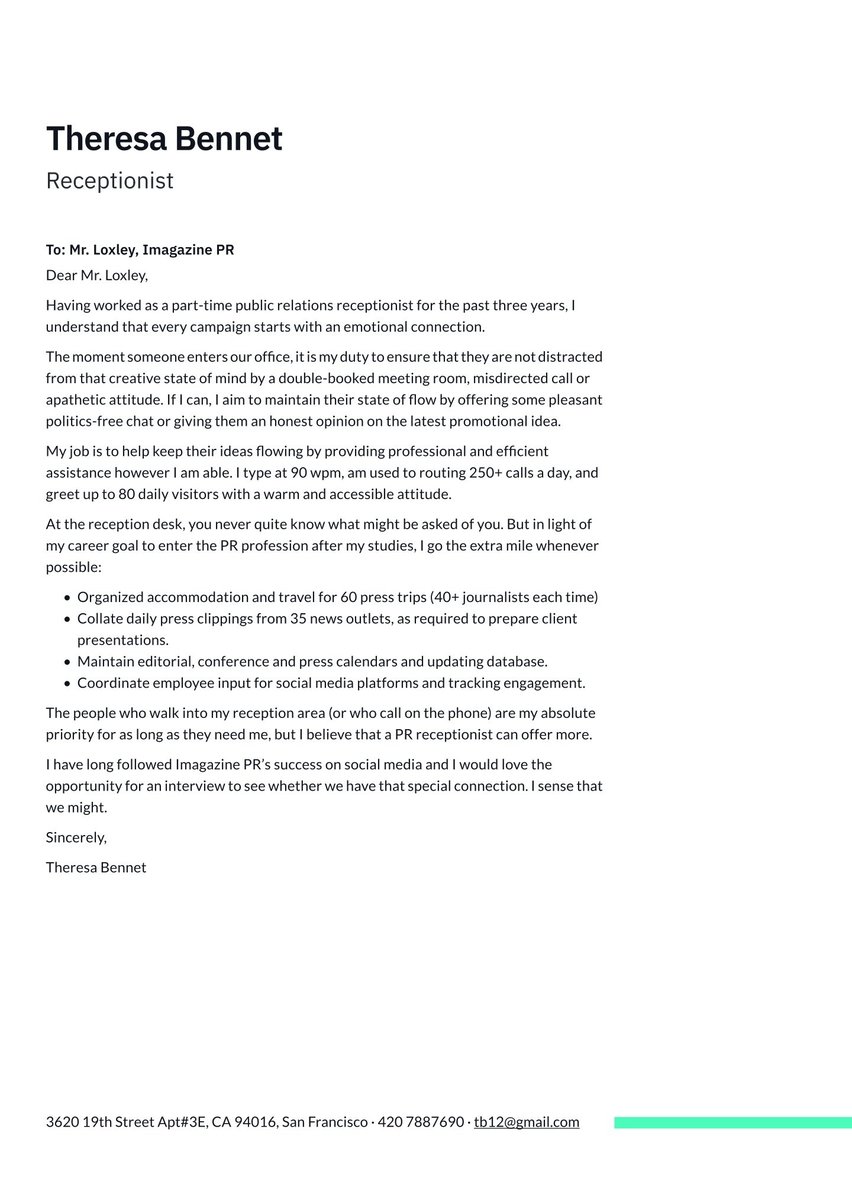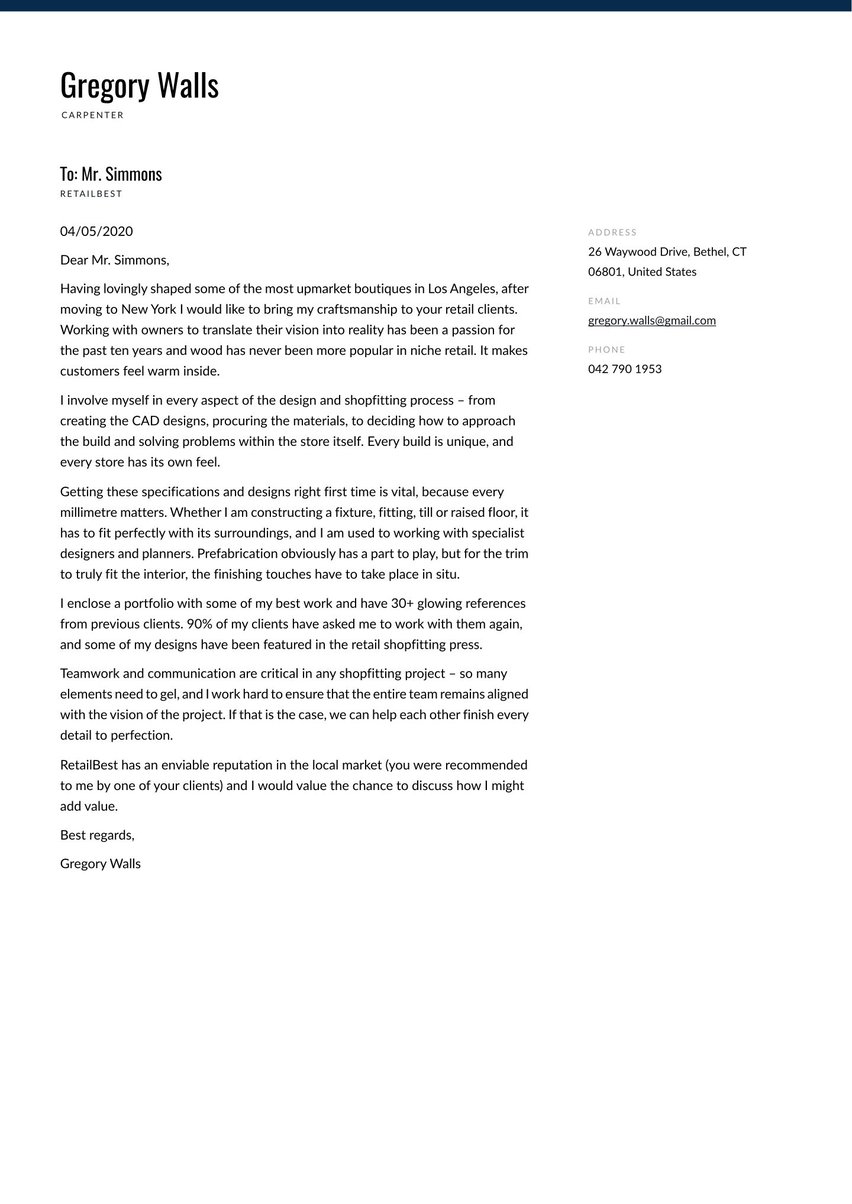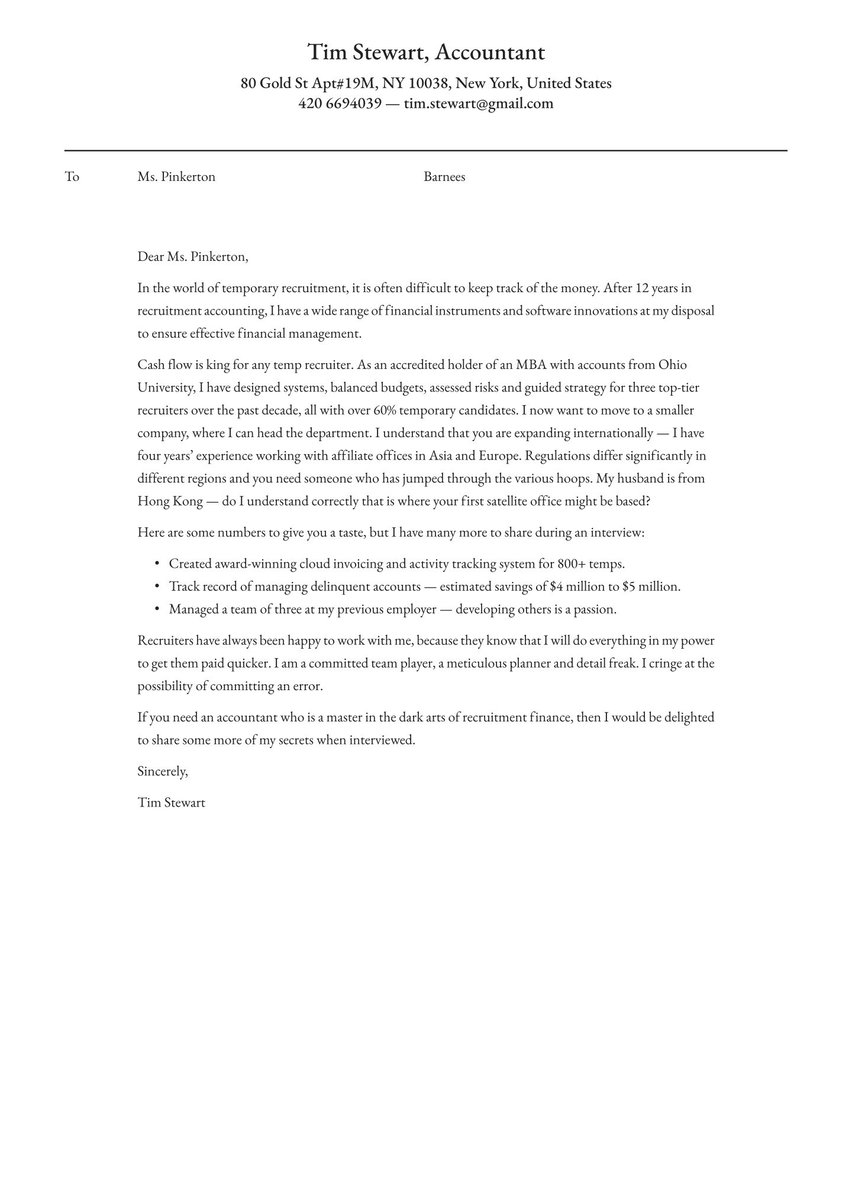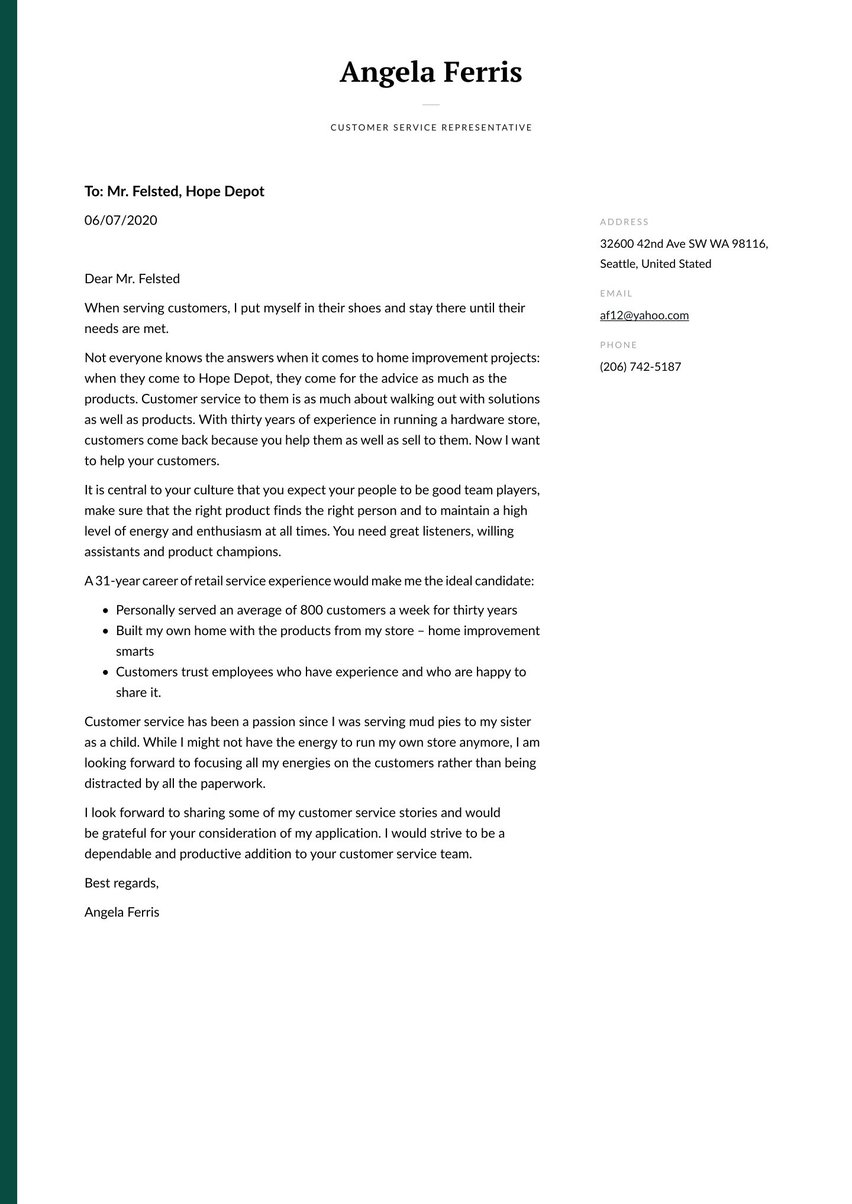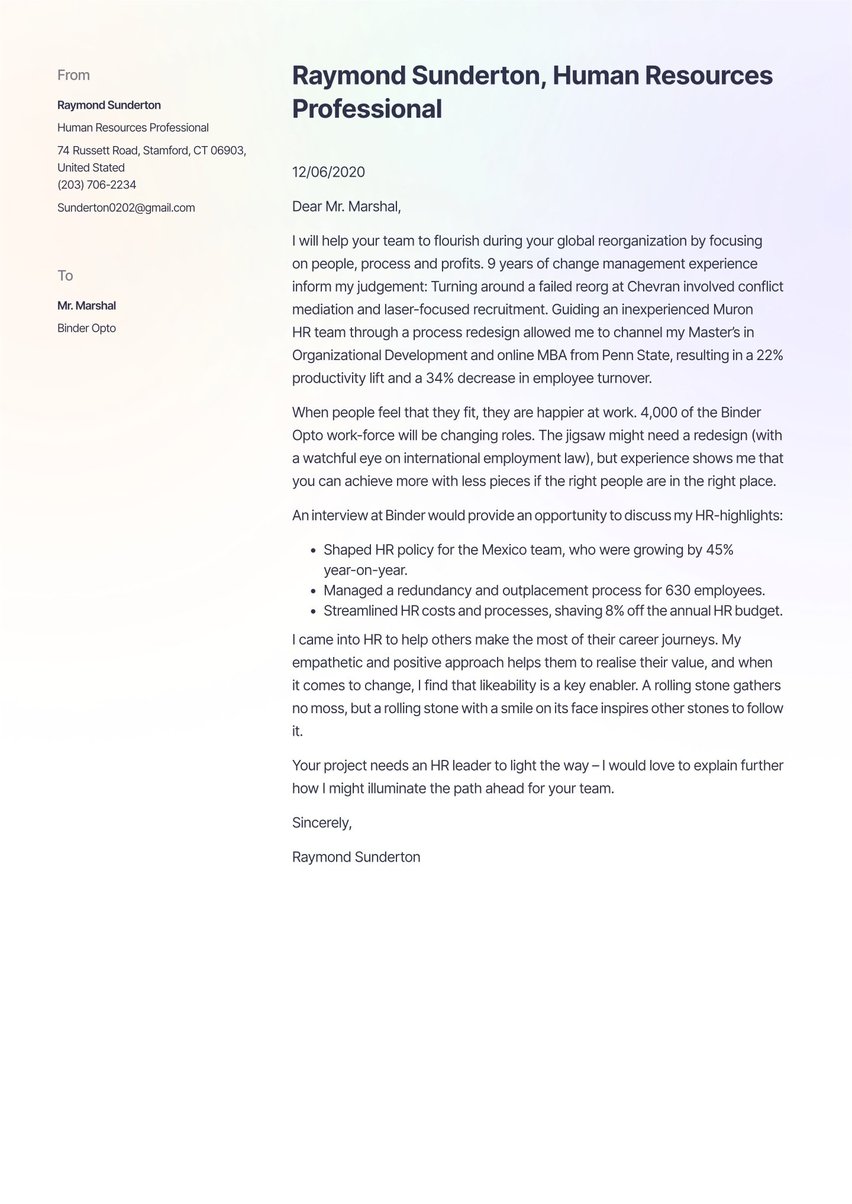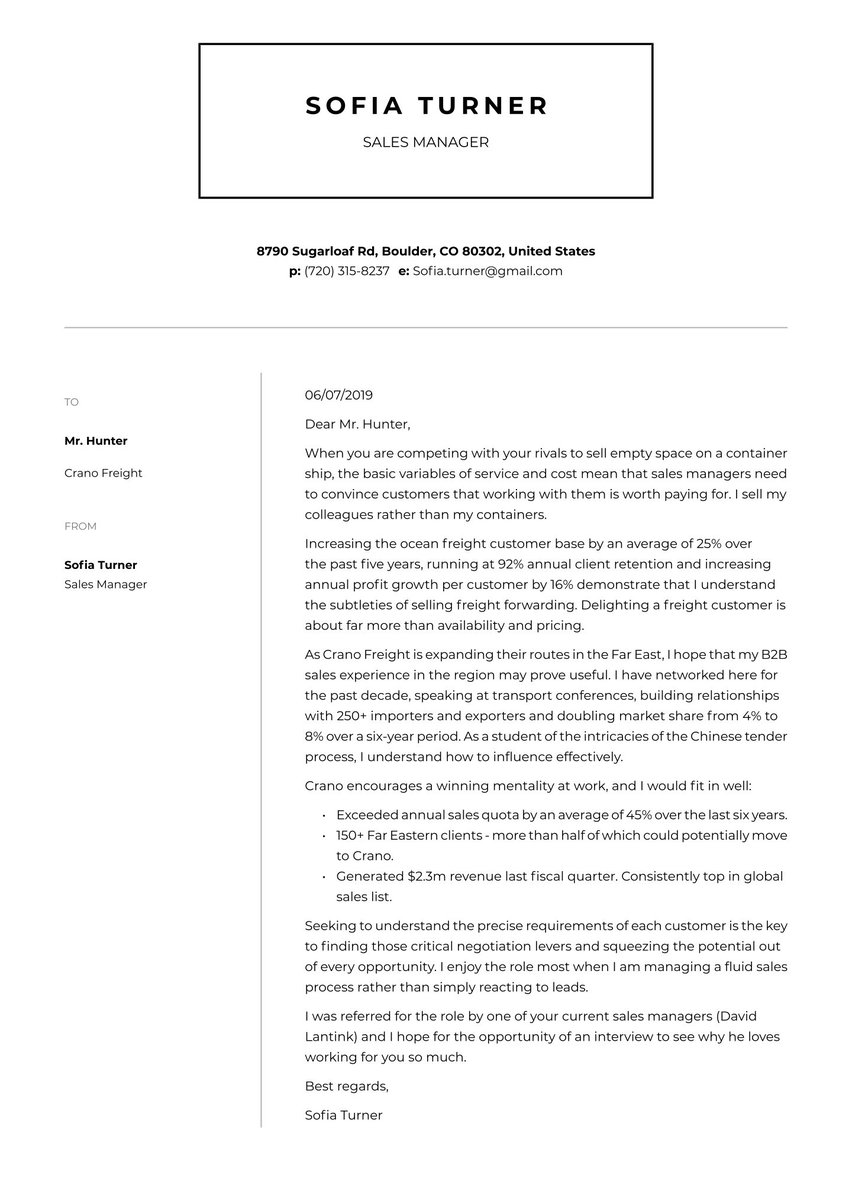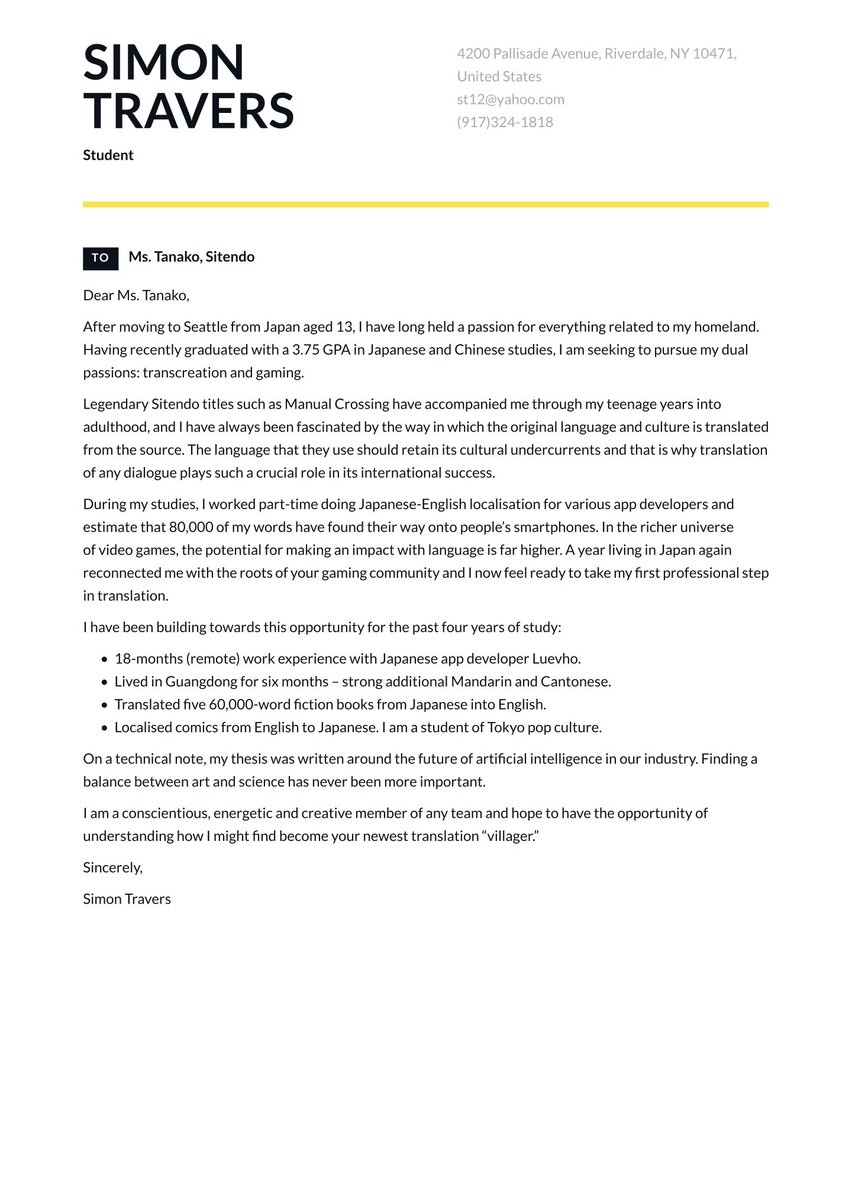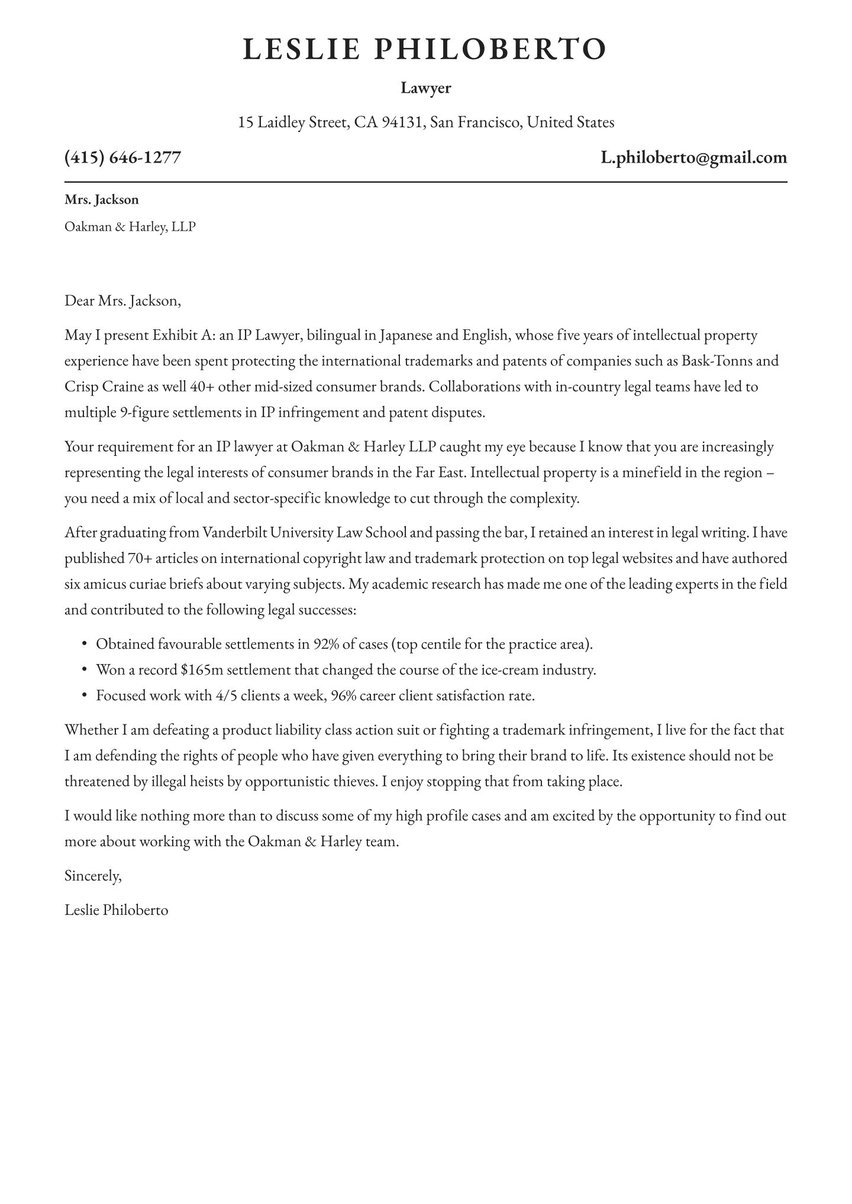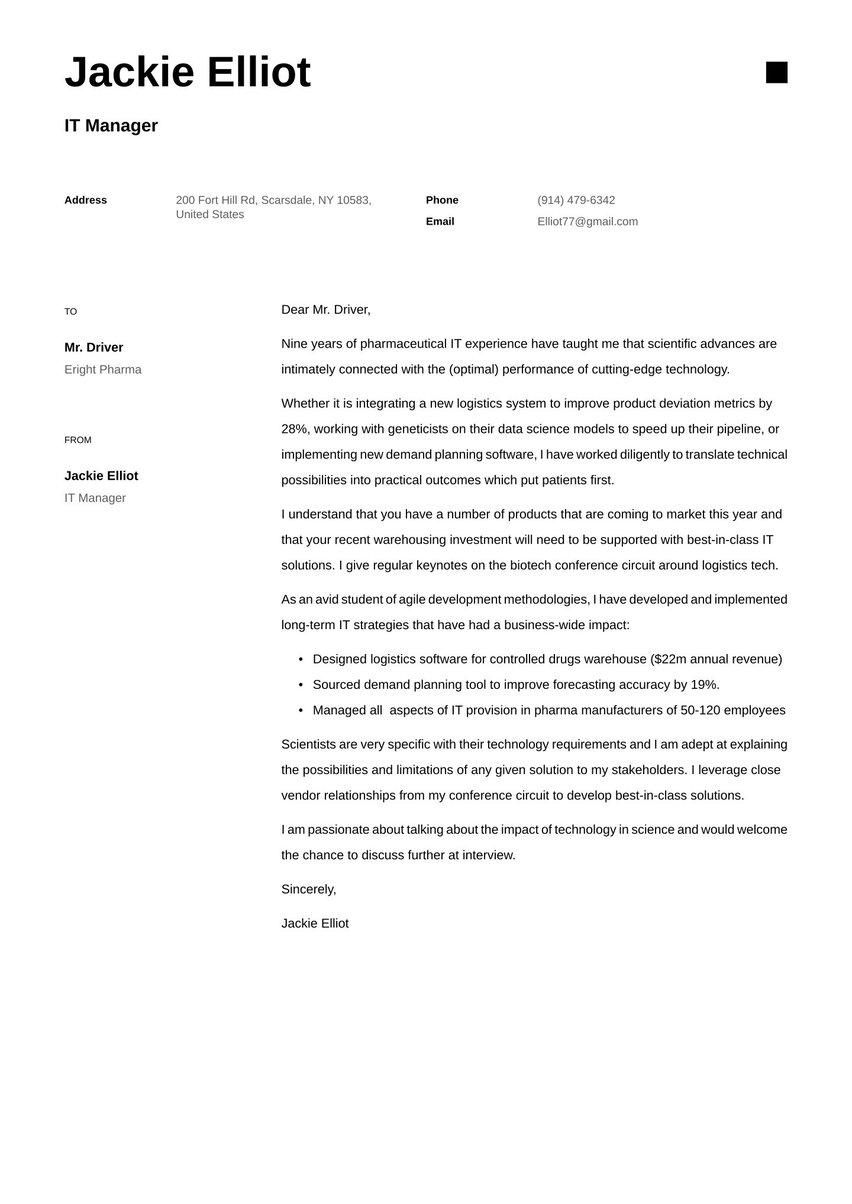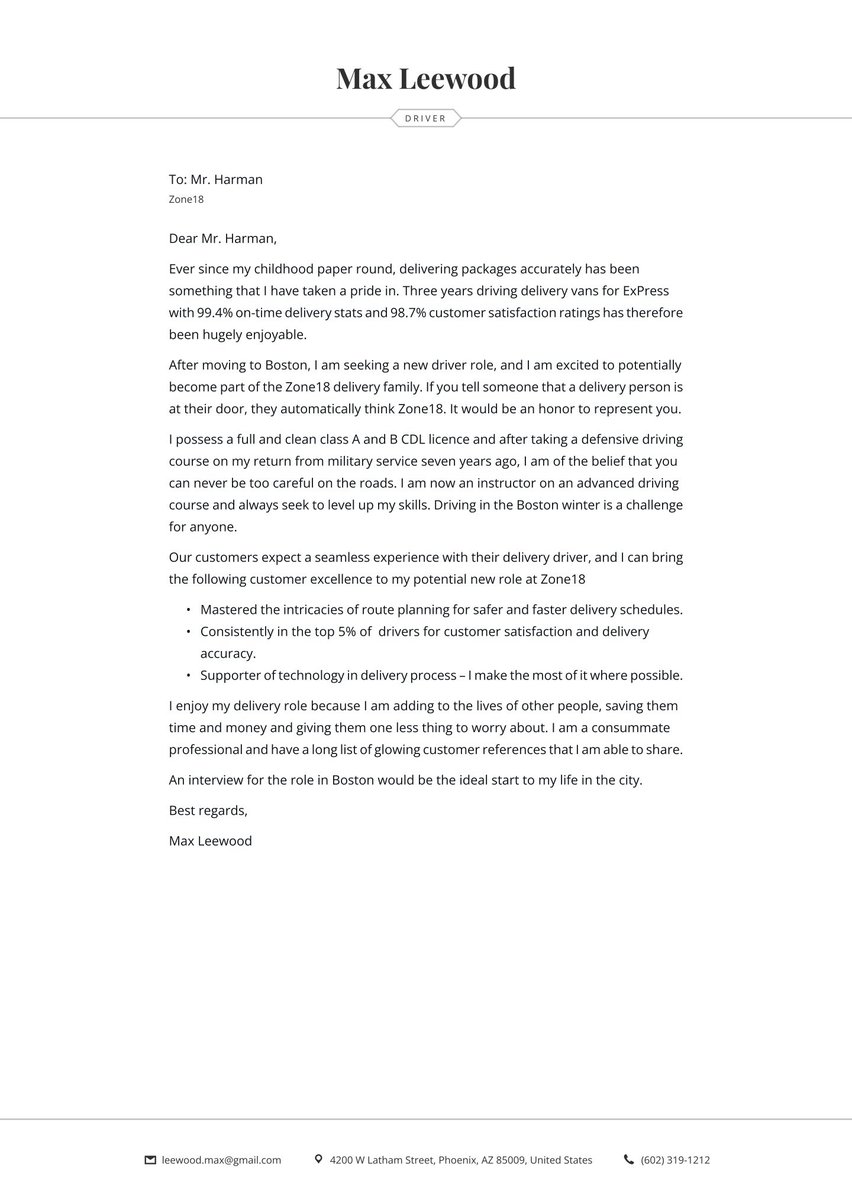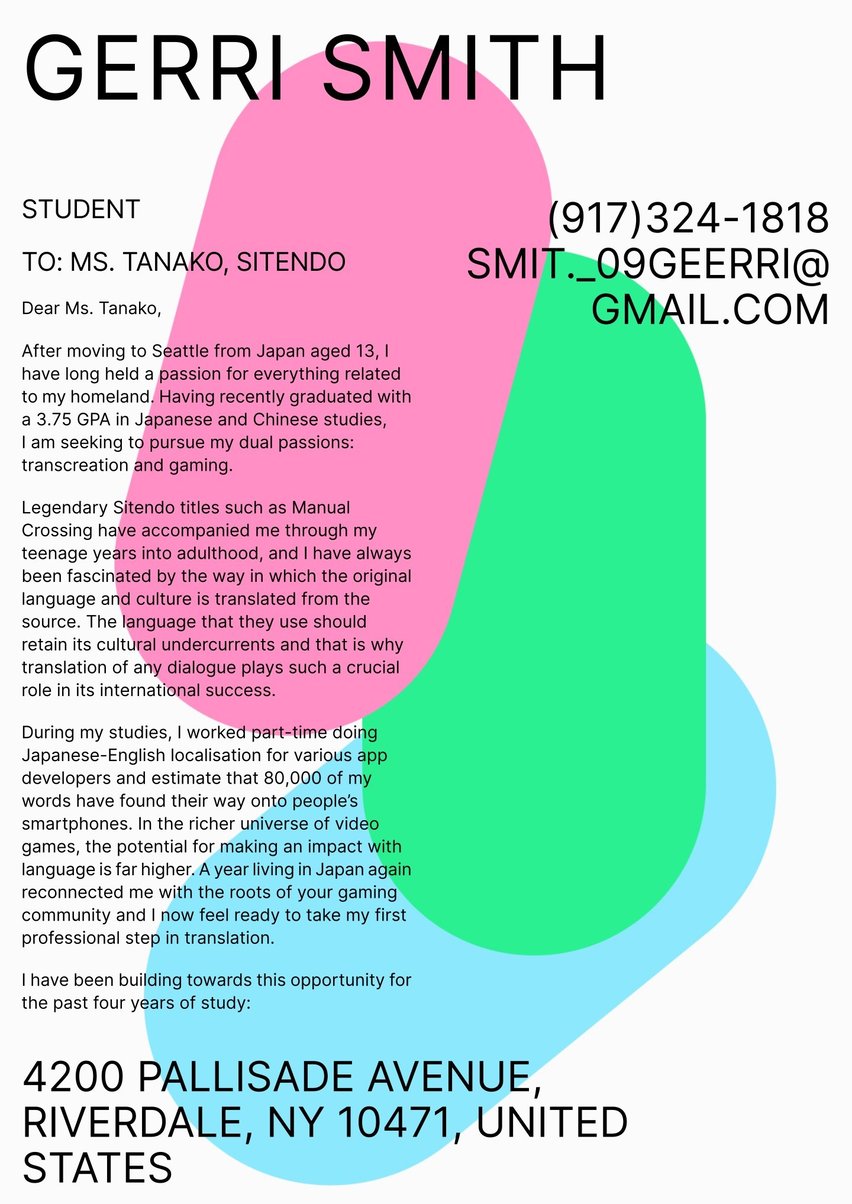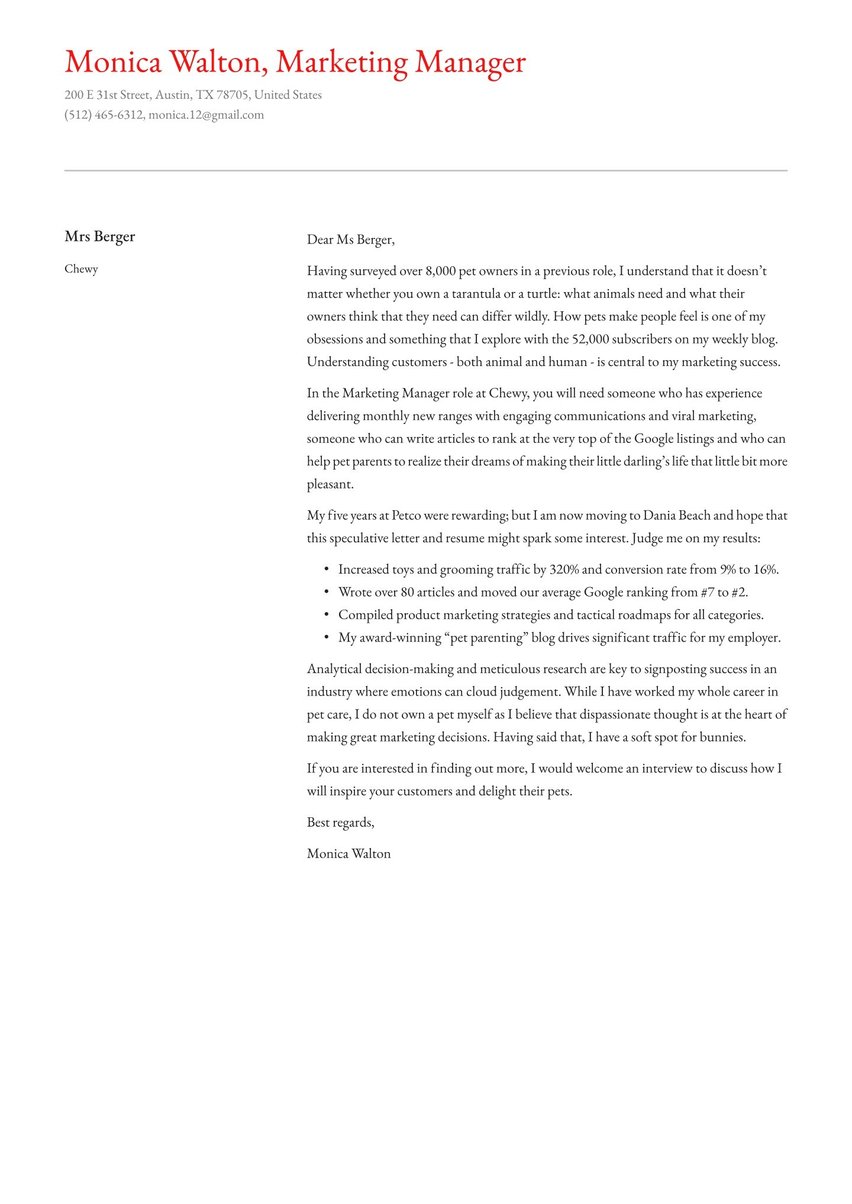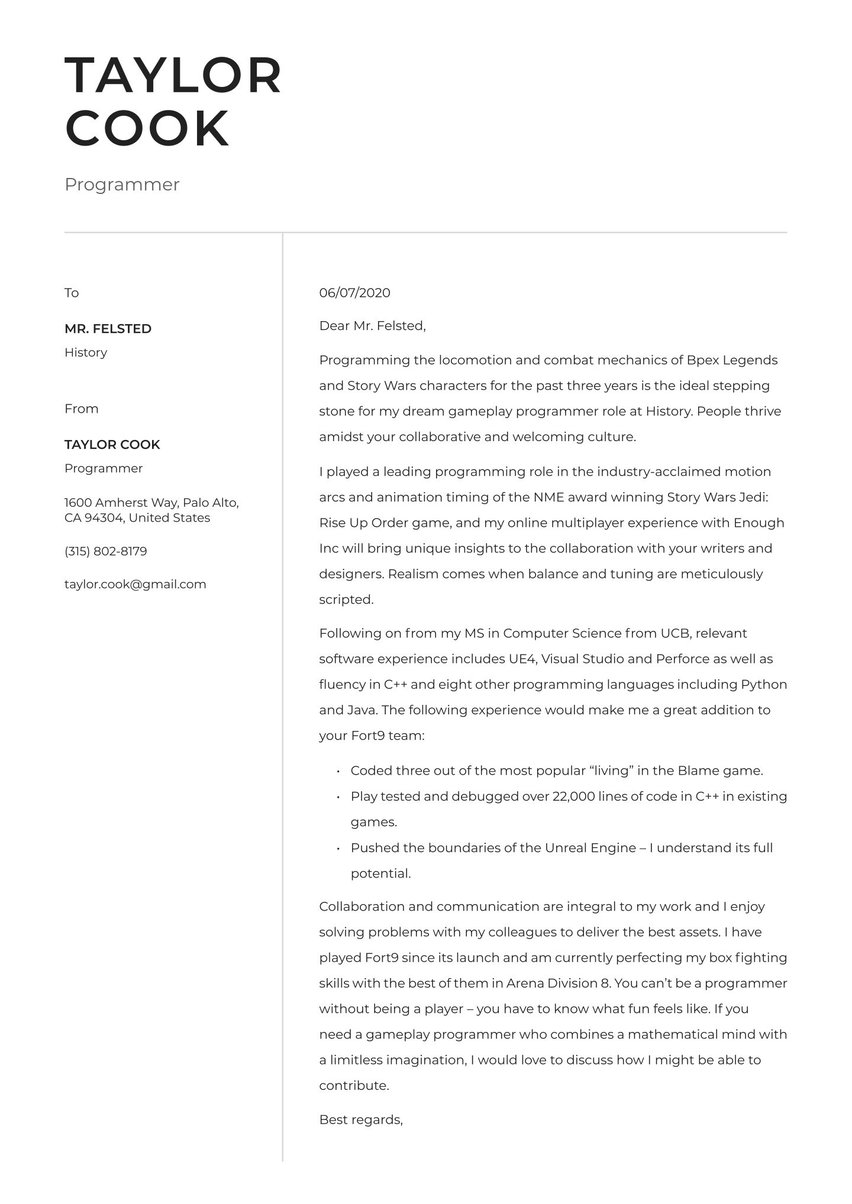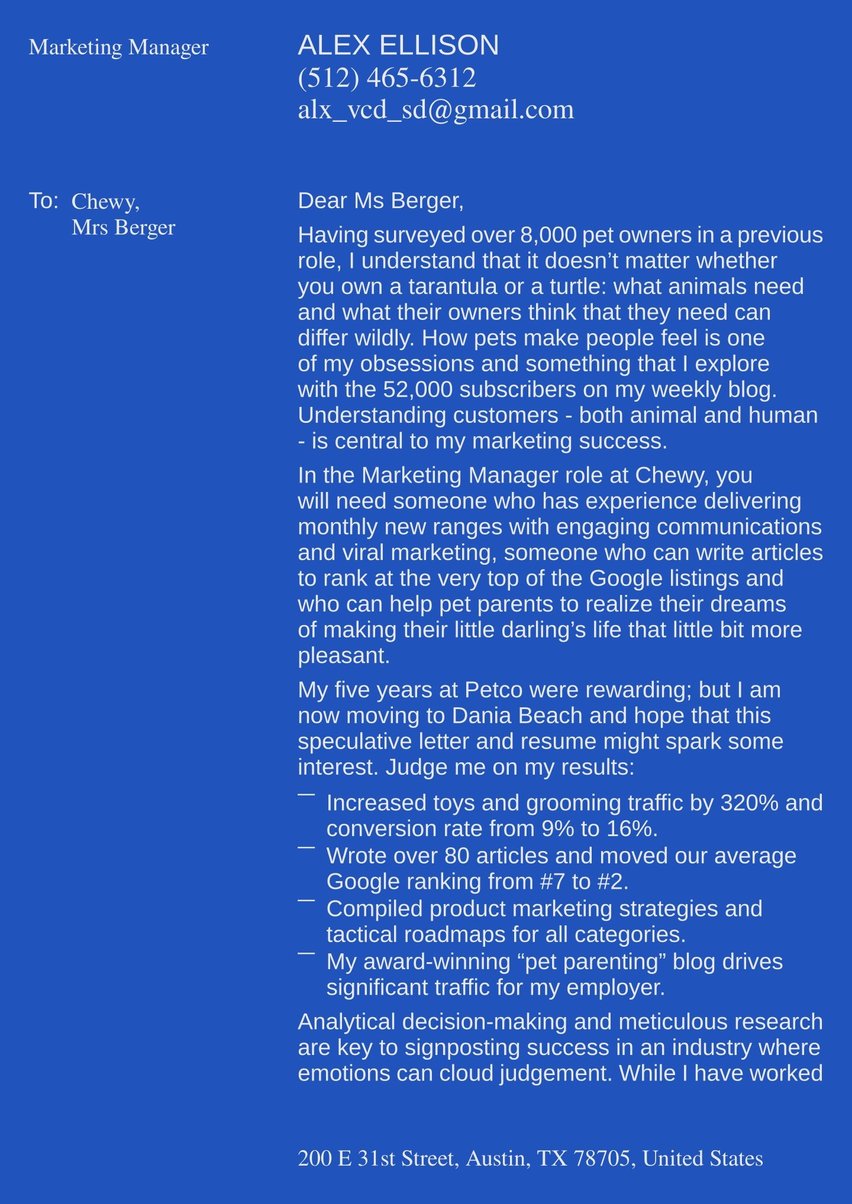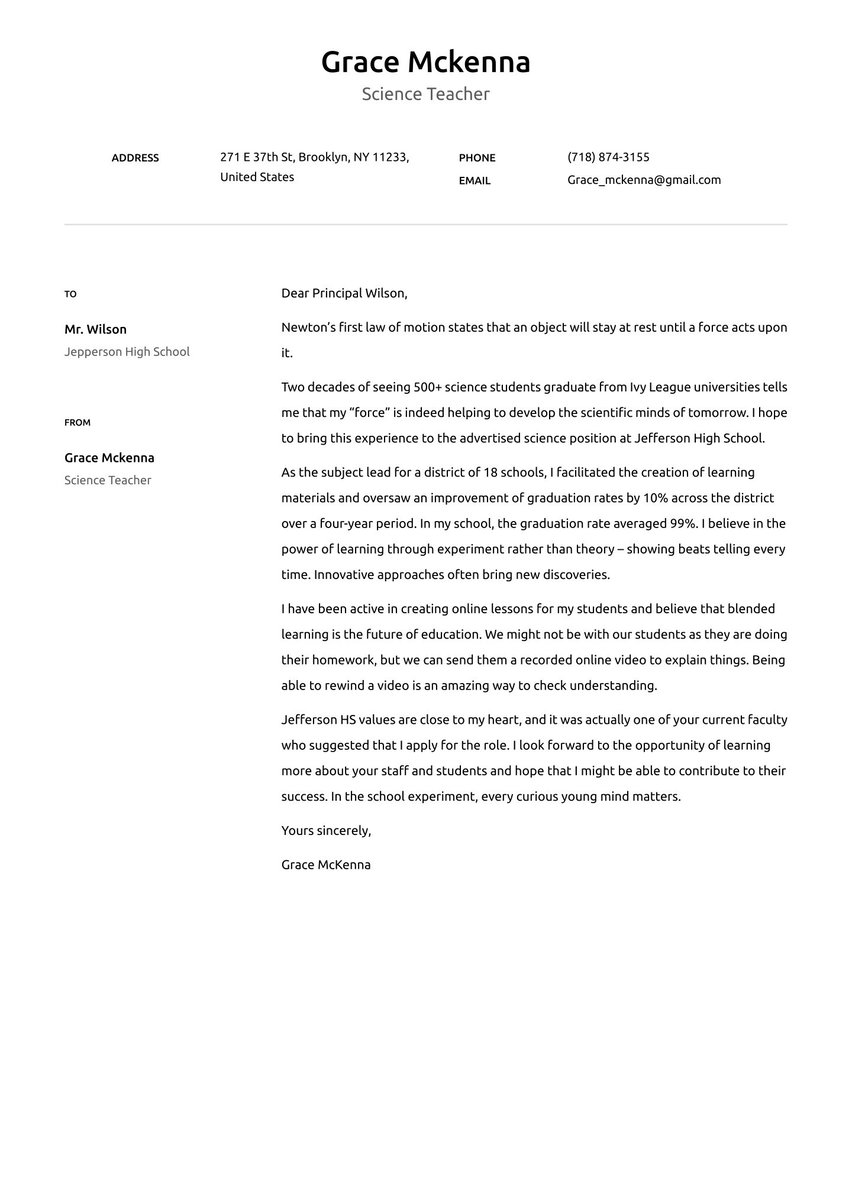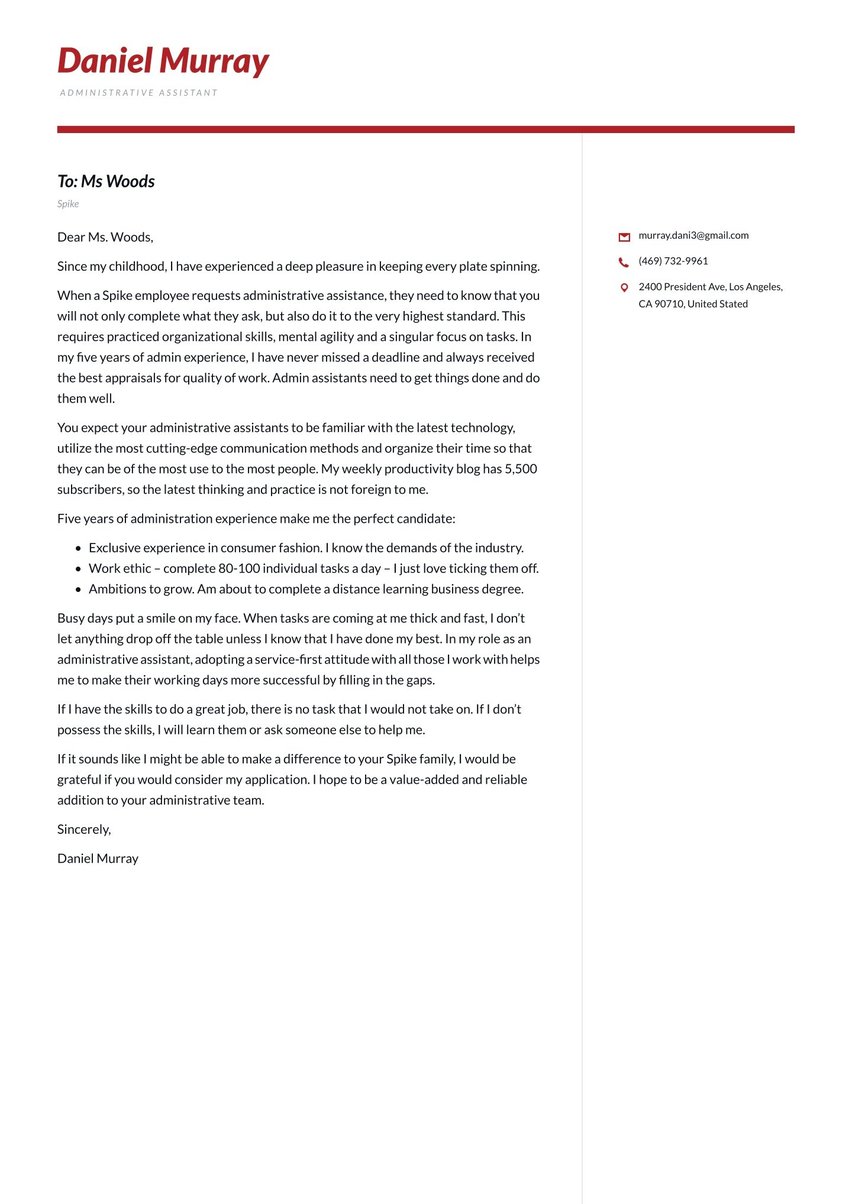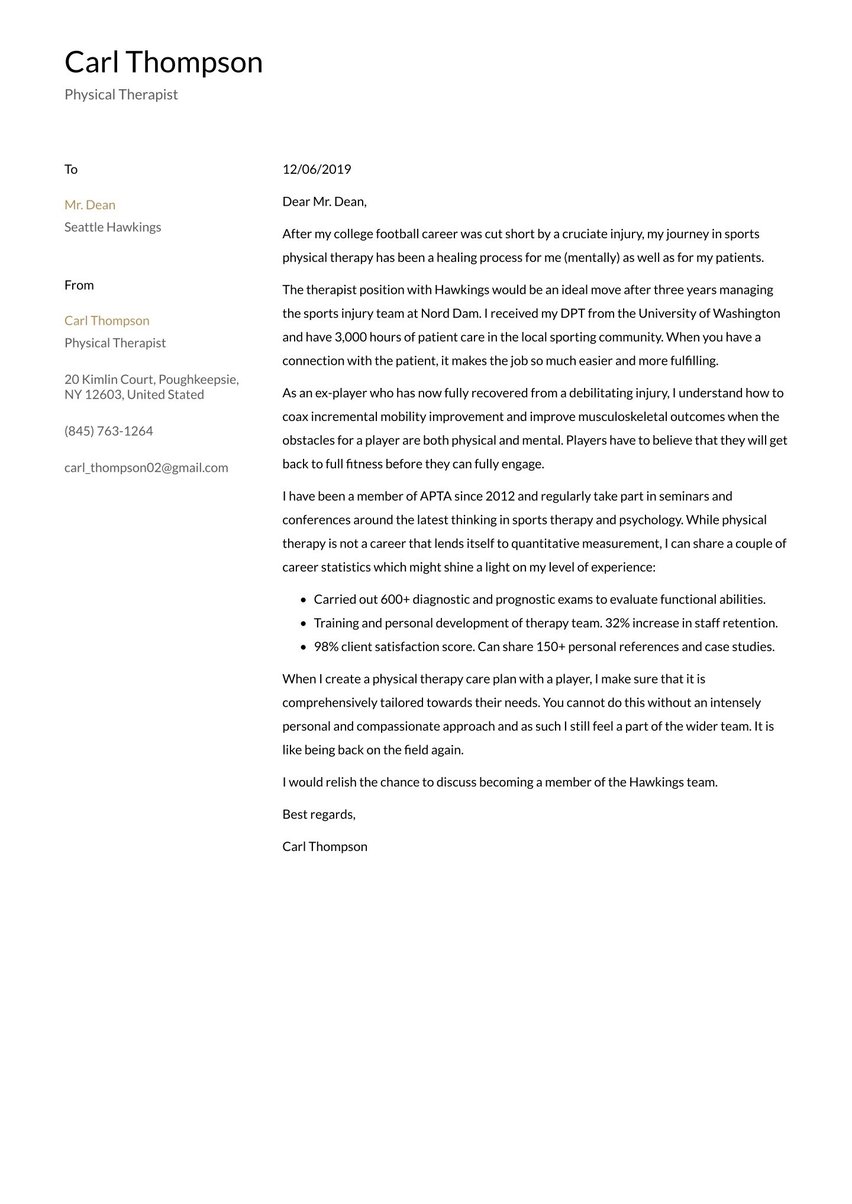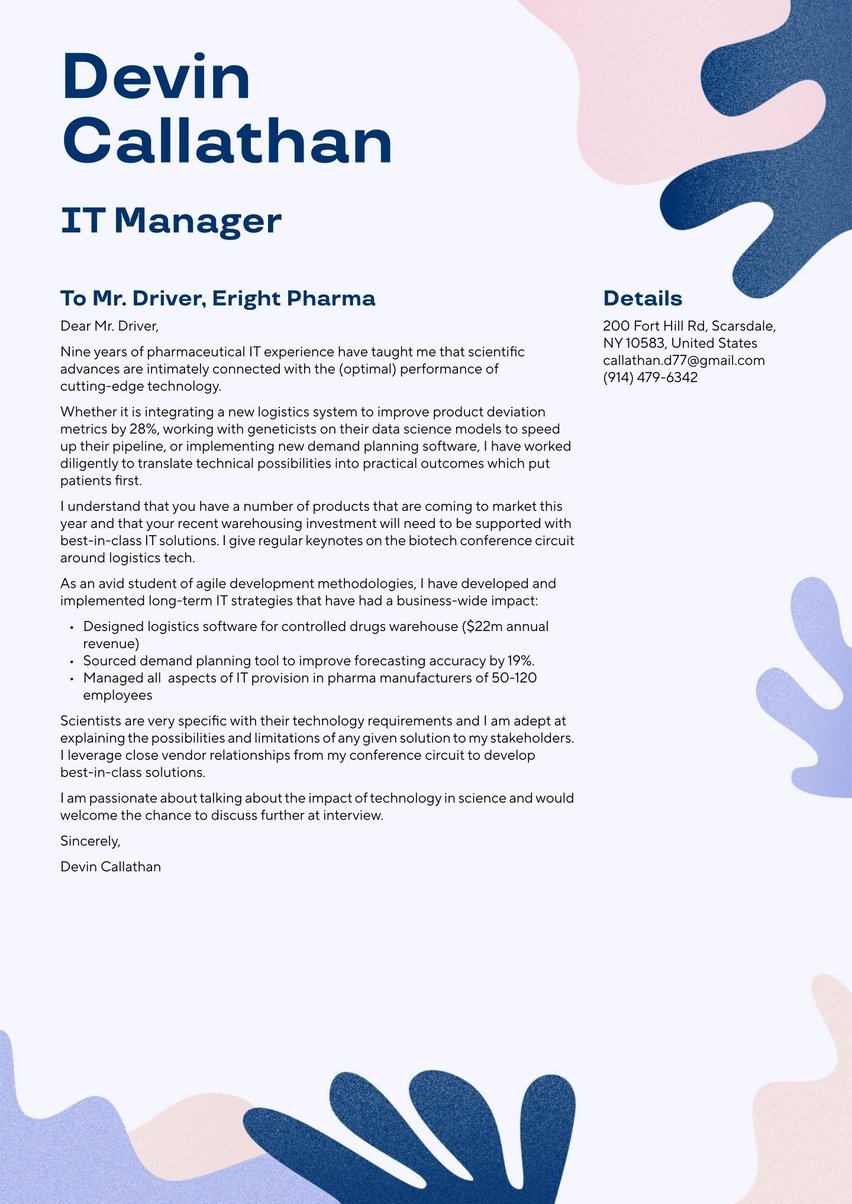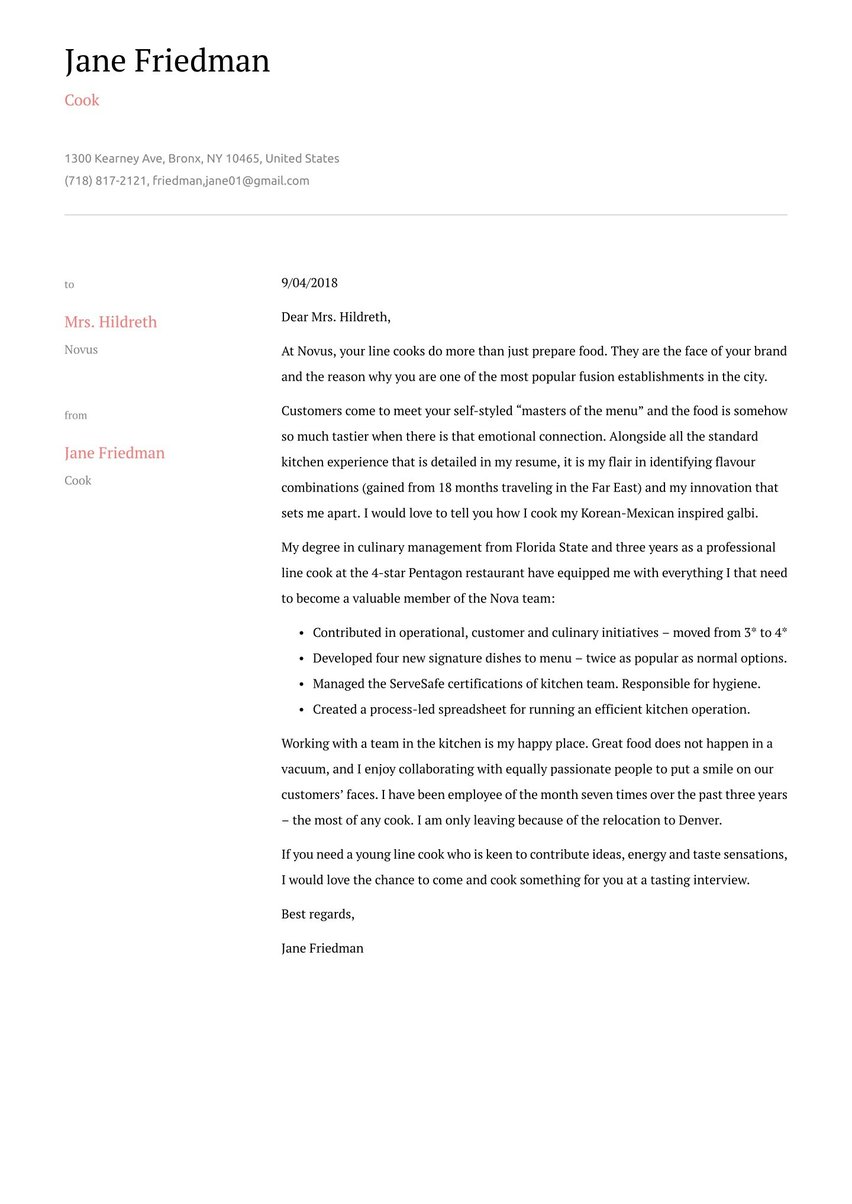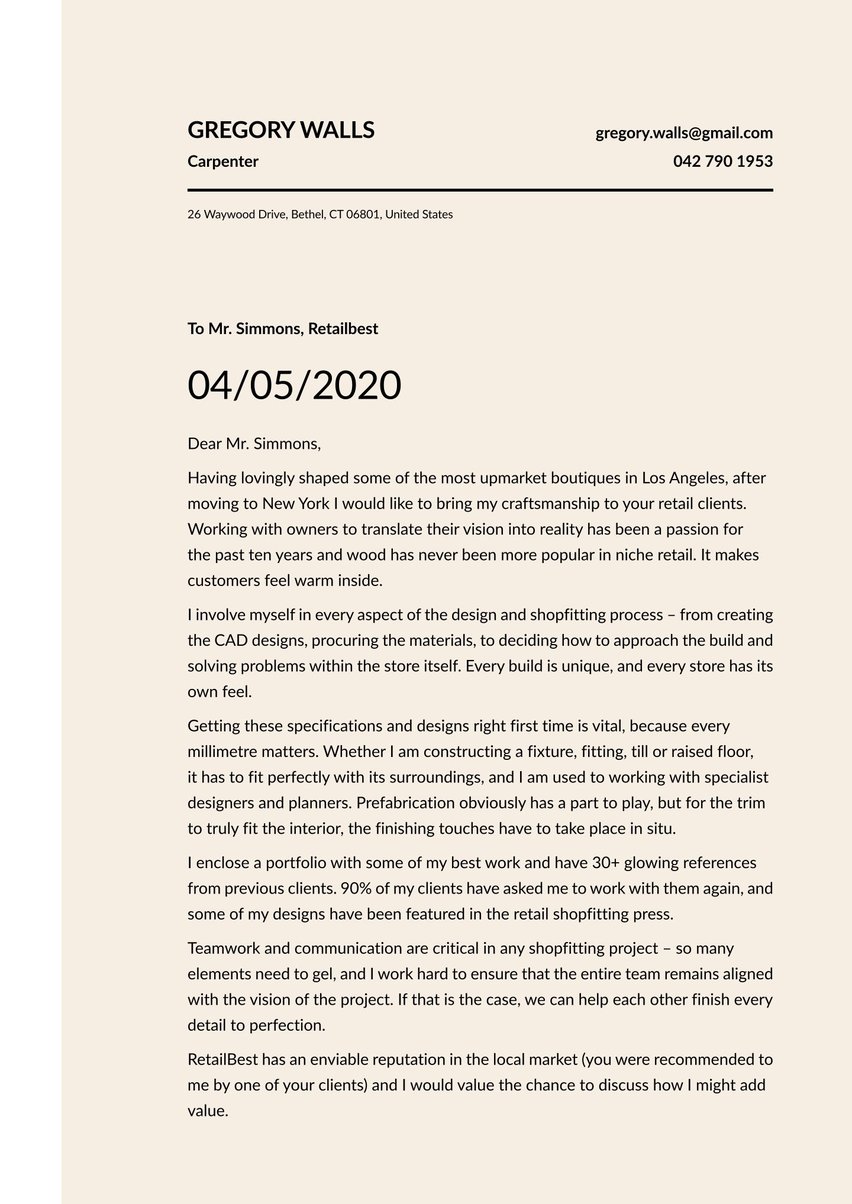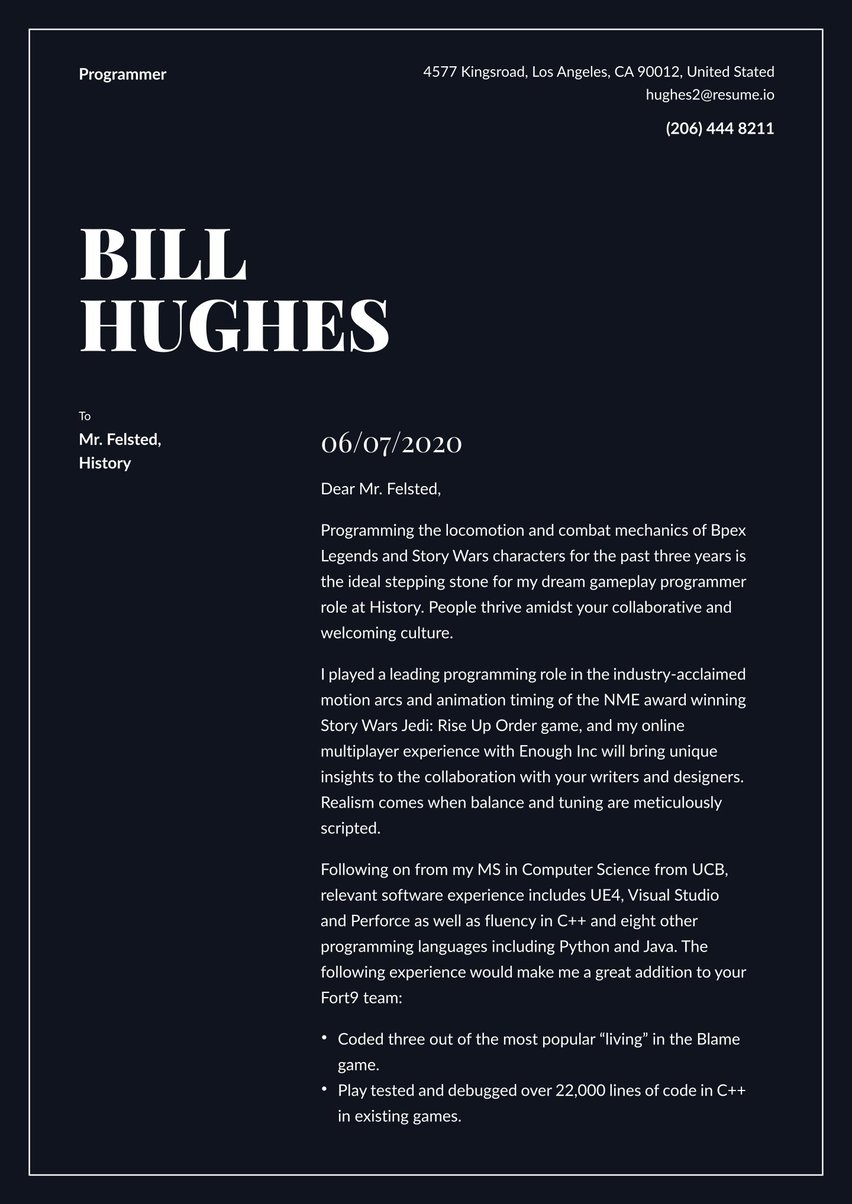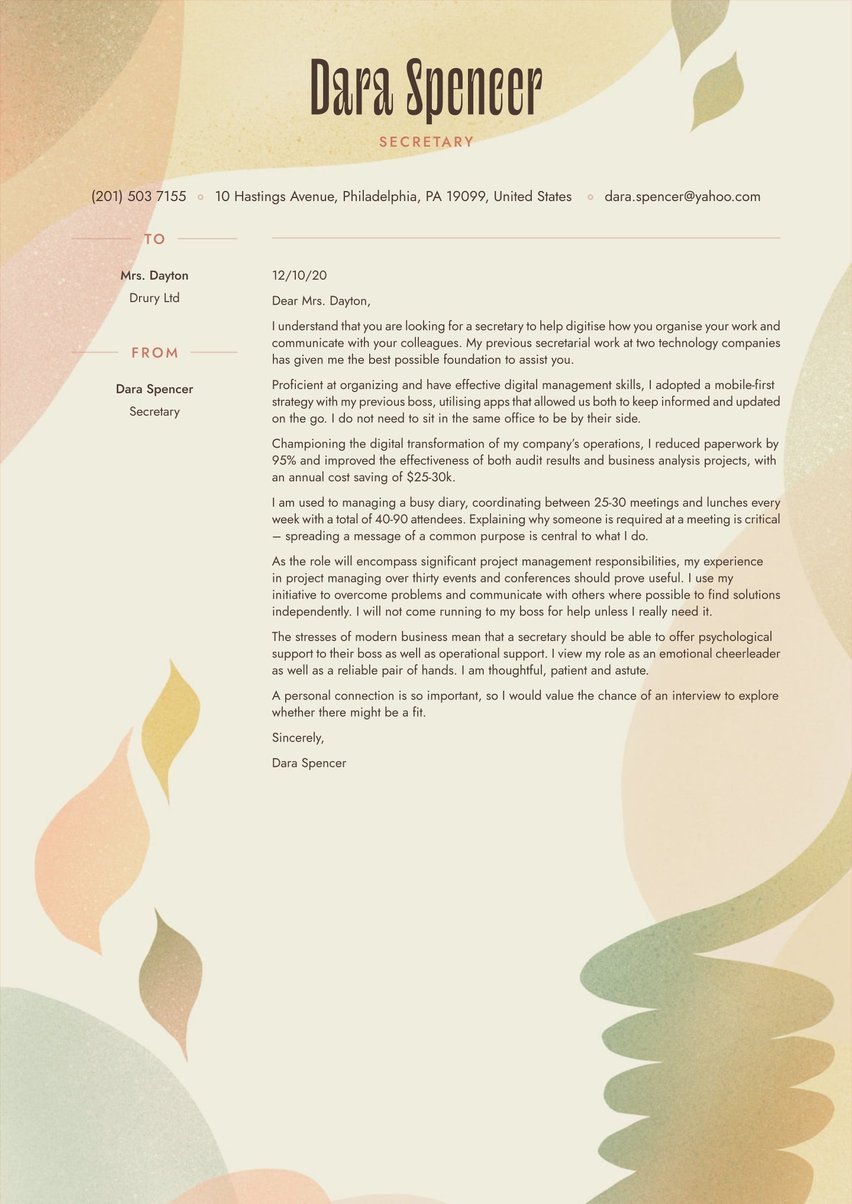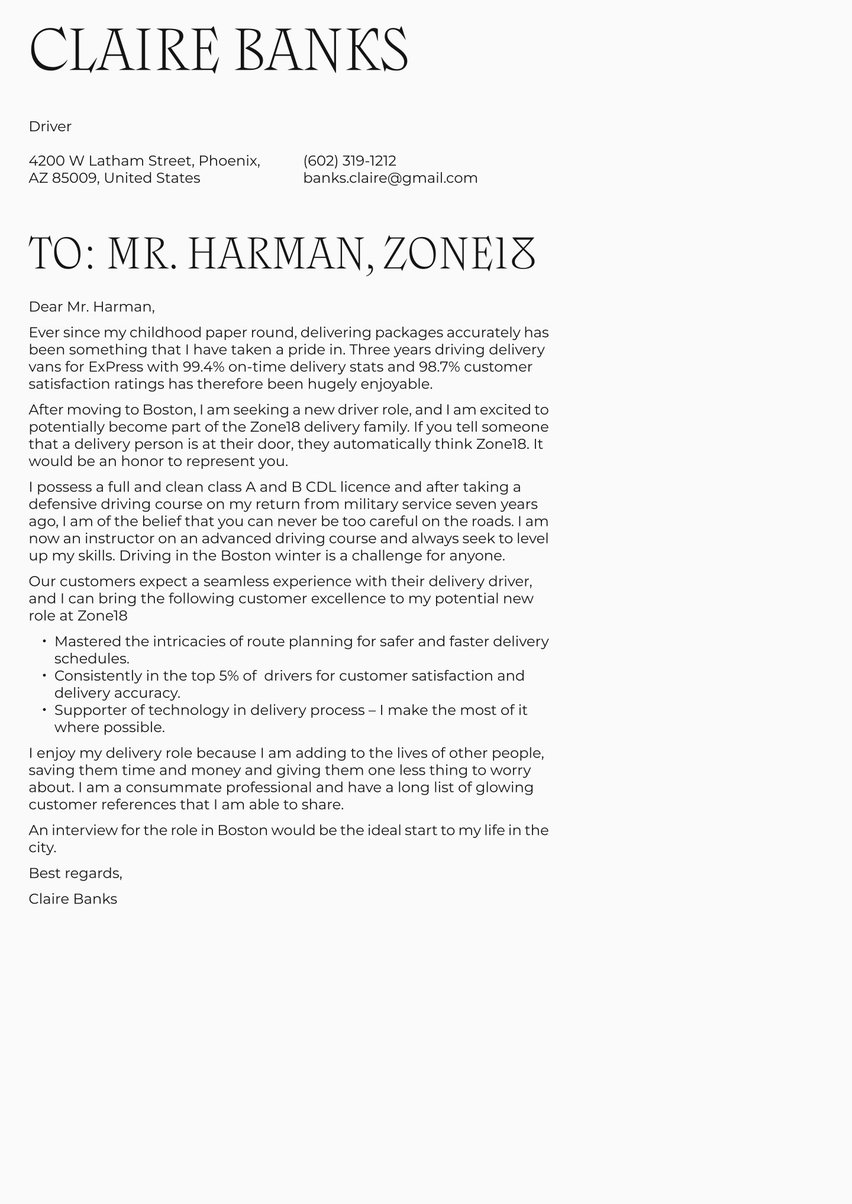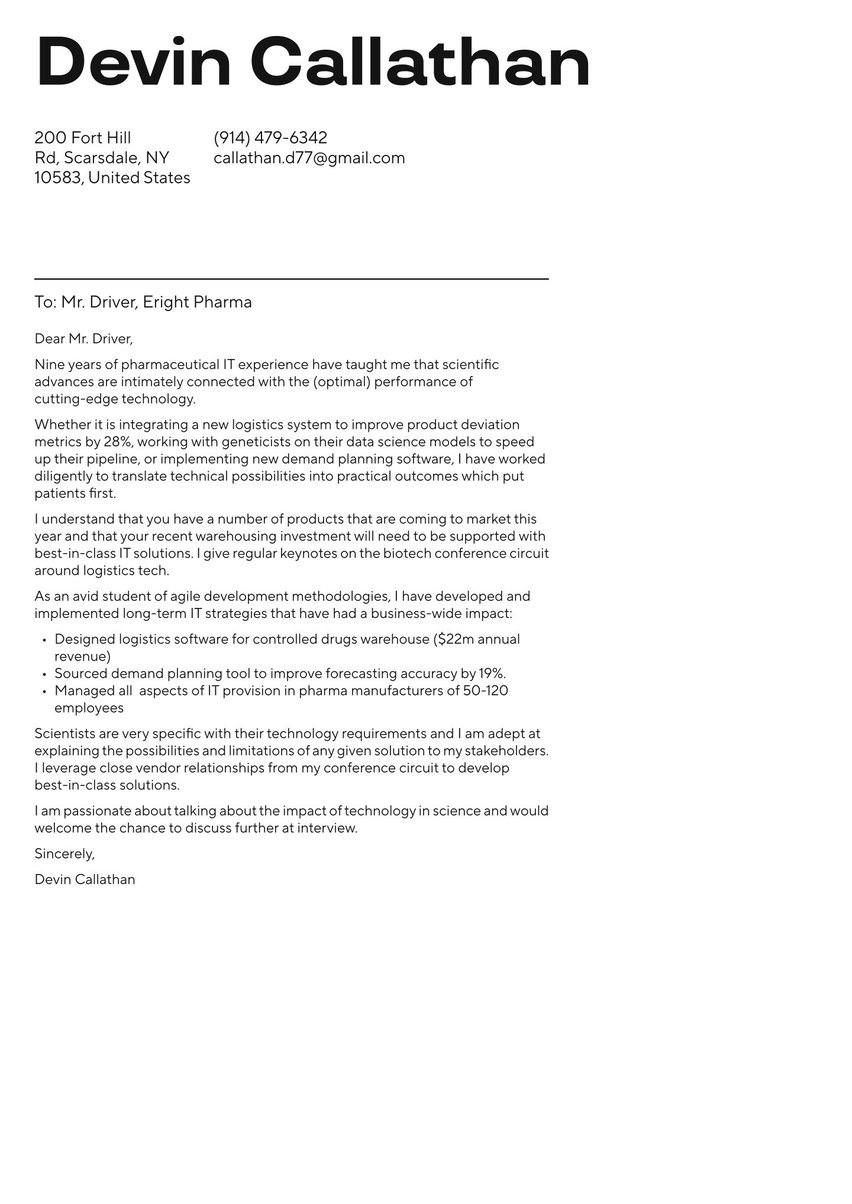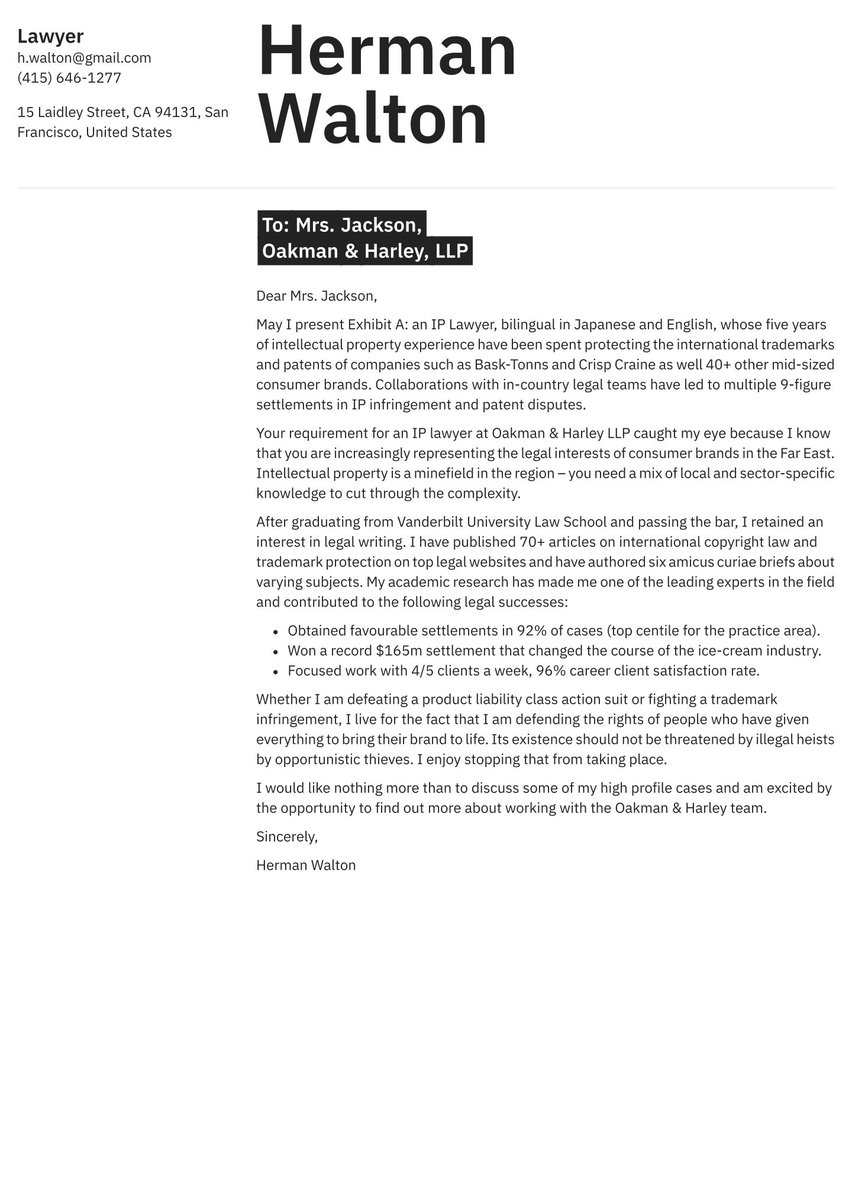As people live happy, healthy lives far into their later years, the need for experienced and compassionate caregivers is expected to increase – exponentially. Caregivers make sure elderly patients and people with disabilities or illness live comfortable, well-rounded lives by attending to their bathing, feeding and home needs. You are not only working for your patient, you are providing peace of mind for their family and loved ones. There are few roles that offer greater job satisfaction, but equally few that are quite as tough.
To land one of the numerous openings as a caregiver, you’ll need to prove to a family or hiring manager that you’ve got great organization skills, you pay attention to details and above all, you’re passionate about helping the people you care for live comfortable lives. How can you convey all the information quickly and effectively?
With a thoughtful and professional cover letter of course! This document is one of the best ways to stand out and show a family you’re serious about the position. It allows you to expand on the information in your resume and make a personal connection to show why you’re the perfect fit.
In this guide, along with our free caregiver cover letter example, we’ll cover the following:
- The parts and purpose of a great cover letter example
- Key mistakes to avoid on your cover letter
- How to write a caregiver cover letter with no experience
- The best format for a caregiver cover letter (sample included)
The job outlook for caregivers over the coming decade looks bright – really bright. The need for caregivers is expected to grow by a whopping 34 percent, according to the Bureau of Labor Statistics. Many of the more than one million openings will be for elderly patients, but there is also a growing need for caretakers who are specialized in helping adults with disabilities.
If you’re looking for even more inspiration, check out our collection of 125+ cover letter examples!
Best format for a caregiver cover letter
The best format makes it easy for a family or hiring manager to follow your thoughts from the first word to the last paragraph. Since each line of a cover letter should add more reasons why you’re the right one for the job, following this tried-and-true structure will help increase your odds of landing the position.
The format of a caregiver cover letter should contain the following elements:
- The cover letter header
- The greeting / salutation
- The cover letter intro
- The middle paragraphs (body of the letter)
- The ending paragraph of your cover letter (conclusion and call-to-action)
Each section of this format should flow into the other, creating a seamless transition between the different elements. Your cover letter should highlight key pieces of your experience and showcase skills that are important for the specific role you’re applying to.
Check out our free caregiver cover letter example for more help in writing your own. This example can also be modified inside of our easy-to-use cover letter builder.
Dear Mrs. Fairweather,
I am a certified caregiver with nine years of providing home-based care for elderly patients with learning and mental health difficulties.
With my previous employer, I provided home care for rotations of up to ten patients a week. I took on basic medical care, keeping track of their mental state, offering basic developmental therapies, and helping with essential life duties. My patients were typically 65-80 years old with a range of physical and mental health concerns.
As my experience has grown, I have come to understand the signs that someone requires a further medical intervention, learning support, or simply someone to talk to. Elderly patients can forget basic tasks when they are ill or under stress, so I specialize in patient and caring education when it all gets a bit much.
A significant proportion of my previous patients were not ambulatory, and I therefore developed the skills (and strength) required when dealing with patients. I am a qualified physiotherapist and have helped people recover from many physical ailments brought on by their mental instability.
A second particular area of expertise is working with patients with dementia and Alzheimer’s. I have a diploma in Mental Health Nursing and Care and devote much of my spare time for fundraising. As a caregiver, I see the direct impact of these charity funds on the lives of my patients.
I would welcome the chance to visit your company for an interview and maybe also accompany one of your caregivers on a visit to understand the approach that you take to this most important of professions.
Sincerely,
Jane Friedman
While this caregiver cover letter sample can help you write your caregiver cover letter, here are some related medical cover letter examples to peruse as well:
- Carer Cover Letter Sample
- Nursing Cover Letter Sample
- Medical Assistant Cover Letter Sample
- CNA (Certified Nursing Assistant) cover Letter Sample
- Physical Therapist Cover Letter Sample
- Medical Receptionist Cover Letter Sample
- Dental Assistant Cover Letter Sample
- Occupational Therapy Cover Letter Sample
- Pharmacy Assistant Cover Letter Sample
- LPN (Licensed Practical Nurse) Cover Letter Sample
- Healthcare Cover Letter Sample
- Medical Cover Letter Sample
- New Grad Registered Nurse Cover Letter Sample
- Nursing Student Cover Letter Sample
- Doctor Assistant Cover Letter Sample
Cover letter header
The cover letter header plays an important role in making sure the hiring manager or letter recipient has basic information about who you are and how to get in touch with you. Located right at the top of your document, the header should contain your name, contact information and any other relevant details. Make sure not to overload the header with too much unnecessary information, because you don’t want to take away precious space from all that you have to say in the rest of your cover letter.
Include your city and state of residence, but leave your full address until the offer stage. There can be confidentiality and data protection issues here. Also, the requirement to include an employer "inside address" is no longer required as most cover letters are sent electronically. Both of these omissions save vital space for your career messaging.
Click into the adaptable caregiver cover letter sample above for more ideas on how to format your header.
The aim of the cover letter header: Convey the vital details about who you are and how to contact you, create visual interest that makes a hiring manager want to read further.
The cover letter header is one of the few places where you’ll be able to add a touch of color or other visual elements to an otherwise plain sheet of paper. For caregivers, a neutral color scheme may be more appropriate, but that doesn’t mean that your cover letter should lack style. Check out our free cover letter templates for easy formatting options.
Cover letter greeting
Your cover letter greeting simply refers to the way you address the person who will be reading your letter. If you’re not familiar with the hiring manager or letter recipient, “Dear” followed by the correct salutation and last name is a generally safe and polite way to go. If you already know the family you hope to work with, you may opt for a more casual greeting including a first name or even “Hi” or “Hello” especially when sending your cover letter in the body of an email.
Try to find out the name of the hiring manager if possible. This may be the name of the care company or it could be the patient or relative if you are applying directly. Whatever the greeting, avoid the impersonal "to whom it may concern."
The aim of the cover letter greeting: Create a friendly and polite tone by using the appropriate greeting and addressing the cover letter recipient by name whenever possible.
Whenever possible, it’s a good idea to address the letter recipient by name to create a more personal connection. If for some reason you don’t know the name of the exact person who will be reading your letter and there’s no reliable way to find out, a general greeting is another possibility. “Dear Hiring Manager” or “Dear Family” are good options for caretaker cover letter samples.
Cover letter introduction
Your cover letter introduction is the moment to hook the letter reader and encourage them to hear more about your strengths in the following paragraphs. Whenever possible, avoid generic or outdated introductions. Instead, begin with a statement about your motivations, the reason why you were attracted to the position or any other interesting tidbit. Make sure to keep your tone energetic and positive so that the reader can sense your passion from the very first sentence.
Those first words should foster a sense of trust in your capabilities. You will be give the ultimate responsibility, so pick a reassuring example around your competence and confidence.
Get more inspiration from the introduction in our caregiver cover letter example:
Dear Mrs. Fairweather,
I am a certified caregiver with nine years of providing home-based care for elderly patients with learning and mental health difficulties.
The aim of the cover letter introduction: Begin your cover letter with an enthusiastic opening line that explains something about your skills or experience and immediately leads into the body section.
Cover letter middle part (body)
The middle part of your cover letter, also called the body, is the place to expand on all your relevant positions and the skills you’ve learned in them. The reader should have the impression that you’re sharing your professional story and not just a laundry list of qualifications. While it’s important to include your achievements and outcomes, make sure to also show your human side and the ways you treat your patients with respect and care. You can also discuss any skills you have that are expressly mentioned in the job description to show what advantages you have over other candidates.
Any caregiver should focus on the parts of their experience that are relevant for their future caring roles. Certain conditions and illnesses have very specific caring requirements, so put those at the top of the cover letter where possible. Share the context of your accomplishments and be as specific as possible without revealing any confidential patient information.
The aim of the cover letter body: Give the most convincing information about why you are right for the caretaker role while also expressing your personality and softer qualities that make you a pleasure to work with
Here’s the body section from our caregiver cover letter sample:
With my previous employer, I provided home care for rotations of up to ten patients a week. I took on basic medical care, keeping track of their mental state, offering basic developmental therapies, and helping with essential life duties. My patients were typically 65-80 years old with a range of physical and mental health concerns.
As my experience has grown, I have come to understand the signs that someone requires a further medical intervention, learning support, or simply someone to talk to. Elderly patients can forget basic tasks when they are ill or under stress, so I specialize in patient and caring education when it all gets a bit much.
A significant proportion of my previous patients were not ambulatory, and I therefore developed the skills (and strength) required when dealing with patients. I am a qualified physiotherapist and have helped people recover from many physical ailments brought on by their mental instability.
A second particular area of expertise is working with patients with dementia and Alzheimer’s. I have a diploma in Mental Health Nursing and Care and devote much of my spare time for fundraising. As a caregiver, I see the direct impact of these charity funds on the lives of my patients.
If you have previous experience as a caretaker, the STAR method can help you form it into concise anecdotes. Begin with a Situation, then describe the Task required of you, your Action and the positive Result you achieved. Make sure to keep your anecdotes concise and focused on only the experiences most relevant to your desired position.
How to close a caregiver cover letter
Congratulations on making it to the closing of your caregiver cover letter. The hard work is behind you and all you need to do now is convince a hiring manager to get in touch through a Call to Action. This sentence states your interest in the position and expressly invites the recipient to contact you for an interview without sounding too pushy.
The sign off using any professional closing that mimics the tone you used in your greeting. “Sincerely,” “Warm regards” or even a more casual “Thank you” can all work well.
The aim of the cover letter closing: Create an effective Call to Action that increases your chances of hearing back, sign off with a friendly and respectful signature
Check out the closing from our caregiver cover letter example:
I would welcome the chance to visit your company for an interview and maybe also accompany one of your caregivers on a visit to understand the approach that you take to this most important of professions.
Sincerely,
Jane Friedman
Caregiver cover letter with no experience
A caregiver job even with no experience is well within your reach. All it takes is some extra attention to make sure that your cover letter shows a family that you have all the necessary skills even if you’ve never worked in the position before.
Luckily, for caregivers, many of the basic tasks can be learned on the job. A lot of caregivers responsibilities include:
- Bathing and dressing patients
- Cooking and serving meals according to dietary needs
- Helping with light housekeeping duties such as vacuuming or dishes
- Driving patients to appointments and helping them navigate their schedules
If you don’t have any experience as a caregiver, writing a cover letter to accompany your resume becomes extra important because it’s the best place to explain the qualities you have that will make you perfect for the role. Consider different soft skills including:
- Patience
- Organization
- Attention to detail
- Motivation
- Friendly disposition
- Flexibility
You may also possess these other “hard skills” that are useful in caregiving:
- CPR and first aid training
- Clean driving record
- Knowledge of medical terminology
- Healthy cooking
- How to perform basic medical checks like blood pressure or glucose levels
By focusing on the qualities you do have (instead of the ones you lack), you can show a family that their beloved grandparent or child will be safe in your care.

How to avoid basic mistakes in a caregiver application letter
To make sure your application letter gets read in its entirety and all your hard work doesn’t go to waste, it’s important to avoid a few basic mistakes. By paying attention to these details you can put yourself ahead of many entry level candidates who don’t have experience writing application letters. Here’s what to watch out for:
- Generic cover letters: Copy-paste cover letters tell a hiring manager that you couldn’t be bothered to put effort into your application. By tailoring your cover letter to each job posting and including only your most relevant experiences and skills, you can quickly prove that you’re a serious candidate.
- Spelling and grammar mistakes: Pesky typos can quickly render your cover letter unreadable and dash your chances of an interview. Luckily, these mistakes can be easily fixed by using an automatic spell checker, like the one found in our cover letter builder.
- Poor formatting: Your formatting needn’t be complicated, but it should always be professional and attractive. Make sure to evaluate the tone of the employer and use an appropriate template if needed.
Key takeaways
- A cover letter is an essential application element for conveying information about you that can’t be deduced from your cover letter so make sure to put time and attention into writing this document.
- The best cover letter format contains all the expected sections, including a header that clearly identifies your name and contact information.
- Address the letter recipient by name whenever possible to create a personal tone and show that you’ve paid attention to the details of the position.
- When applying to a caregiver position with no experience, focus on your personal qualities and other hard skills that you’ve picked up in other positions.
- Don’t let spelling and grammar be your downfall – ask a friend to proofread your cover letter and run spell check before you submit. Grammarly is an excellent online resource.


